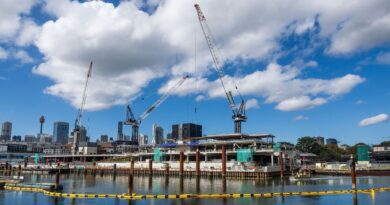Panic in Spain as Brits flock in record numbers despite overtourism protests | World | News
The number of foreign tourists flocking to Spain has continued to skyrocket despite ongoing overtourism protests, with Brits being the top demographic. In April there were a record breaking 8.6 million arrivals – a 10.1% increase on last April, according the to the National Institute of Statistics.
The institute said Spain welcomed 25.6 million people in the first four months of the year – a 7.1% increase on the same period last year. If this trend continues, the country could see 100 million visitors this year for the first time ever. Brits continue to dominate the figures, making up over 4.7 million arrivals – an increase of 6.7%.
France came in second place with 3.4 million (an increase of 8.3%), followed by Germany with 3.3 million, up 4.8%.
In April, Spain’s Catalonia region proved the most popular, attracting a total of 1.7 million people and accounting for 20% of foreign tourists.
Roughly 16% of visitors that month visited Andalucia, which took second place, and the Balearic Islands came in third with 15.8%.
This comes as activist groups across Spain and southern Europe are bracing for what’s being described as “an unprecedented mobilisation” on June 15.
The action is expected to impact hotspots such as the Canary Islands – Lanzarote and Tenerife, along with Barcelona and Majorca in the Balearics.
The Southern European Network Against Touristisation (SET) confirmed the plans for the coordinated protests at a recent assembly.
Margalida Ramis from the environmental group GOB emphasised the pressing need to cap tourism growth and bring socio-economic change.
Protester Elena Boschi said she wanted to scare visitors in order to bring change. She explained: “We want tourists to have some level of fear about the situation; without fear, there is no change.”
An anonymous member of the group said tourism is negatively impacting locals’ quality of life.
They added: “We are not against tourists, but what we don’t welcome is a way of being in our cities and regions that turns it into a place that is no longer nice to live in for us.”





